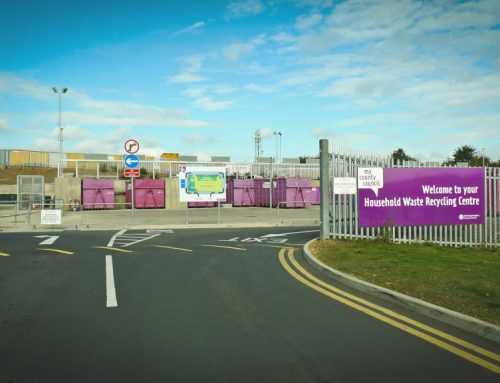by Sam Taylor
4 minute read
In the four months from February to May this year, around £900,000 was paid to charitable causes by companies in recompense for environmental crimes. These types of payments, known as Enforcement Undertakings (EUs), allow offenders to avoid criminal prosecution by making amends through a civil route. Offenders make voluntary offers to put right the environmental damage they’ve caused, or where that is not possible, make payments to secure compensating benefits or improvements to the environment.
While historically only issued rarely and for minor offences, EUs have become much more common in recent years and the amounts being paid for each offence continue to grow. Last year, the media paid attention when supermarket chain Costcutter paid over £650,000 for failing to meet its packaging waste obligations, donating the money to Waste and Resources Action Programme (WRAP).
While it’s welcome that EUs are being taken more seriously, it isn’t clear that the regulatory system has adapted to the new role they are playing in enforcement. One issue is that it seems it falls to the offender to place a value on many of the impacts associated with their offending activity.
Civilised behaviour
EUs are intended to provide the Environment Agency with a means of enforcement that avoids the time-consuming and costly route of prosecution through the criminal courts. They are used where the regulator has reasonable grounds to suspect that an offence has been committed – a relatively low standard of proof.
For criminal offences, the Environment Agency takes a policing role, investigating the offence and acting as the prosecutor. For a successful criminal conviction, the Agency must prove its case beyond reasonable doubt. For less serious offences, the cost-effectiveness of prosecution is marginal at best; so, if a route is available by which the offender can admit culpability, and redress the situation through restoration or financial compensation, it’s an appealing solution for the regulator. Of course, there are also attractions for the offender, who avoids the negative consequences, including publicity, associated with a criminal sanction.
Between 2010 and 2015, the Environment Agency used EUs to good effect for minor environmental offences, primarily administrative failures such as not complying with Extended Producer Responsibility requirements like purchasing Packaging Recovery Notes (PRNs). These financial sanctions were typically no more than £2,000–£3,000: payments so small that there was little potential for achieving substantive environmental benefits from them.
As the scheme has evolved over time, its use has been extended to cover breaches of the Environmental Permitting Regulations. The size of undertakings has also increased.
Book value
As the use of EUs grows, so does the scope to use the money raised to fully address the environmental problems caused by poor performance. However, this potential is not being realised.
According to figures released by the Environment Agency, 17 of the 36 EUs it reported having accepted between 1st February 2018 and 31st May 2018 were for crimes related to packaging waste. They resulted in total payments of £297,485. It’s unclear how accurately this corresponds to the environment damage caused by the offending behaviour.
One way to improve the matching the penalty to the offence would be to require EUs to be calculated in line with the HM Treasury’s Green Book, which provides detailed guidance on economic appraisals. This would give offenders a clear basis on which to determine the payment they should make, while also enabling the regulator to check that the offender’s calculation was reasonable. A better approach still, however, would be for the appropriate EU payment to be determined by an independent assessor. This would avoid companies underestimating out of financial self-interest while allowing the Environment Agency to remain free of the burden of playing both regulator and financial assessor.
Benefit sanctions?
In addition to the uncertainty over whether the amounts are accurately calculated to reflect the damage caused, it is also unclear what specific charitable activities are being funded. While no doubt charitable beneficiaries of EUs do valuable work, an argument can be made that the Environment Agency is failing to properly evaluate whether the charities named by offenders are appropriate recipients of EU donations. It’s therefore questionable whether the legislative stipulation that EUs secure benefit or improvement to the environment equal to the disbenefits of the crime is being properly applied.

Does the Environment Agency need to update its approach to Enforcement Undertakings? Photo: Luftalarm (CC BY-SA 2.0), via Wikimedia Commons.
The Environment Agency is still managing EUs as if they were insignificant sums, but this is no longer the case. An independent assessment of the impact of offending behaviour and robust evaluation of the types of the activities that that the money should be spent on appears increasingly worthwhile.
As EUs grow in popularity as a means of redressing environmental crimes it is becoming ever more important that the environmental benefits they achieve should be maximised. Now is the time for government and the Environment Agency to reconsider how the rules around EUs are being applied, and how they might better fulfil the original intention of the policy: to secure benefits or improvements to the environment which counter the disbenefits brought about by criminal activity.






Leave A Comment